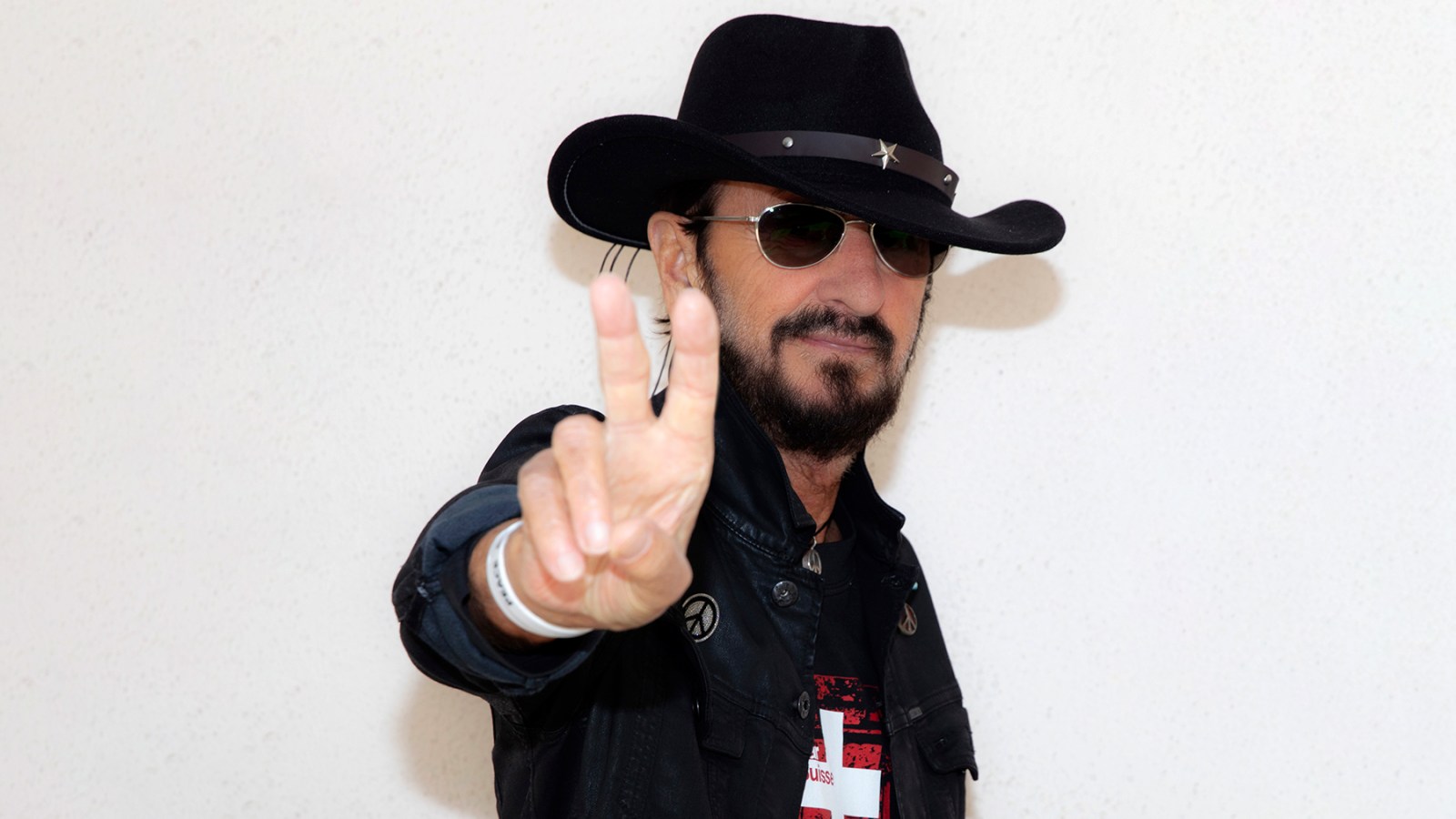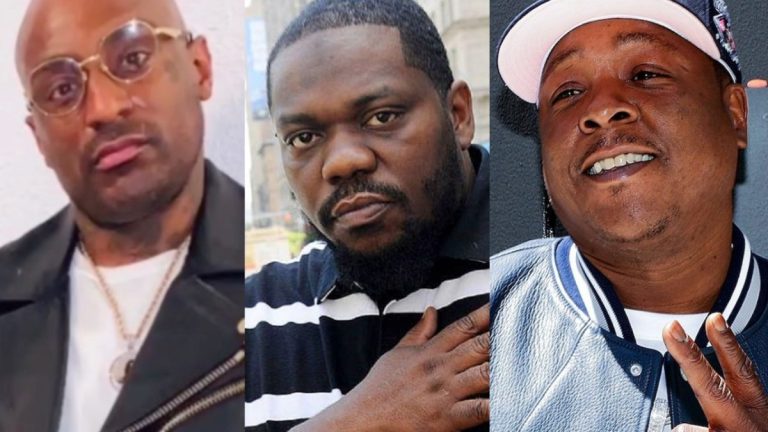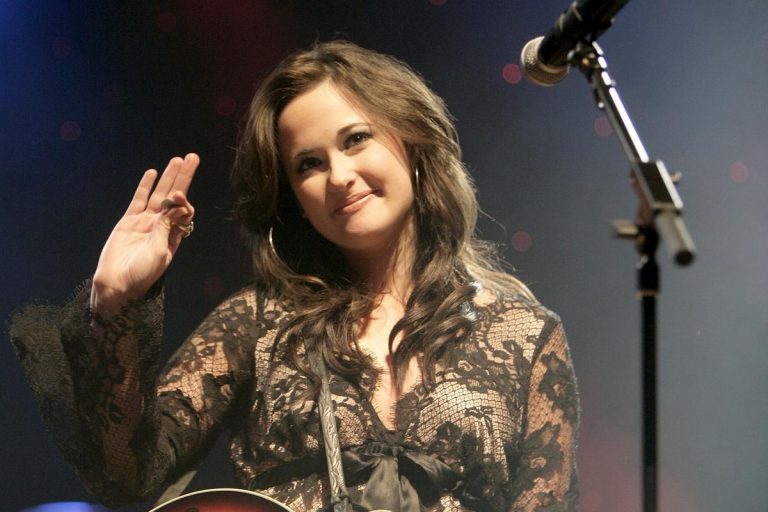The same day the Beatles took the stage for what would be their final live concert in front of paying fans, the Fab Four were approached by a tall figure with a baritone voice. It was the Man in Black, in attendance that Aug. 29, 1966, at San Francisco’s Candlestick Park.
“We met Johnny Cash on the last gig the Beatles did, in San Francisco,” Ringo Starr says today. “That was the last time we did gigs, and Johnny was there to see us off.”
Starr, 84, remembers it vividly, like many of his encounters over the years with country music royalty, from Willie Nelson to Waylon Jennings. The Beatles drummer has always been a passionate country fan and often brought twangy songs to the legendary band’s recording sessions — like “Act Naturally,” made famous by Buck Owens before Ringo sang it on Help!, Rubber Soul’s “What Goes On,” and his solo composition for the White Album, “Don’t Pass Me By.”
According to Starr, his bandmates were receptive of his country offerings — and glad they weren’t just rehashed songs they’d already recorded.
“When I first wrote songs, I would play it to the boys in the studio, and they would be rolling on the floor laughing, because I didn’t notice that all I’d done is rewritten real songs that were out there,” he says. “Like ‘Yesterday’ as [sings] ‘Come and Play.’ I’d just put new words to these songs.”
After the Beatles split in 1970, Starr plumbed the depths of his country music fandom on the solo album Beaucoups of Blues, a down-home collection of barroom shuffles and bluesy ballads. Now, for the first time since that release, he’s returning wholeheartedly to the genre with Look Up, his new album of rootsy country, folk, and rockabilly songs. “I like old country, old style, and that’s what we’ve got,” he says.
Look Up leans more Americana than Music Row, but Starr says he was keenly aware of mainstream country’s surging popularity while making the album — including Beyoncé’s milestone Cowboy Carter. “We were all aware of Beyoncé. I think it’s great she made that move,” Starr says. But the tireless proponent of “peace and love” says the new album was inspired not by any countrymania of the moment, but by a chance meeting with old-timey music champion T Bone Burnett at a book reading by George Harrison’s widow, Olivia.
Starr, who resides in Los Angeles, told the Grammy-winning producer he was recording some new songs, and asked Burnett to forward along anything he could contribute. “And he sent me this beautiful country song,” Starr says. Burnett wrote or co-wrote the bulk of the 11 tracks, some with Daniel Tashian (Kacey Musgraves’ Golden Hour), another with Billy Swan.
“The name ‘Ringo Starr’ sounds like the sheriff of Tombstone, Arizona. It’s very much a cowboy name, and my first thought was I would write a cowboy ballad,” Burnett says. “I tried to write a Gene Autry kind of cowboy song. It just started rolling from there.”
Burnett’s inclination to evoke Autry while writing the song “Come Back” was right on point. When Starr was a child growing up in Liverpool, England, he used to watch Westerns starring the singing cowboy. He credits that early memory of Autry with fostering his interest in country music.
“I was a lad in the movies, and they had Saturday morning for kids, and one of his movies were on. He started singing ‘South of the border, down Mexico way,’ and two other guys on horses went ‘Aye, yi, yi, yi,’” he recalls. “It was just one of those musical thrills for a kid. So, that’s how it started.”
When Starr recorded Beaucoups of Blues in Nashville over a few quick days in the summer of 1970, the sessions were studded with some of Music City’s best players: Charlie Daniels and Jerry Reed on guitar; Neil Young’s soon-to-be steel player Ben Keith; Bob Dylan collaborator Charlie McCoy on harmonica; and Pete Drake, who produced the album, also on steel. For Look Up, Burnett recruited today’s version of that A-team, including Billy Strings, Lucius, Larkin Poe, Alison Krauss, and Molly Tuttle.
Tuttle, who plays guitar on a number of songs, has the honor of singing the only duet with Starr on the project, “Can You Hear Me Call,” inspired by Bill Monroe’s “Can’t You Hear Me Callin’.” The bluegrass picker and singer recorded her parts in Nashville with Burnett and Tashian; those parts were then added to Starr’s previously recorded vocals and drumming. (“I’m a bit sloppy, but it’s still a groove, you know?” Starr says of his playing.)
Tuttle has yet to meet the Beatle, but hopes to finally get the chance at a pair of “Ringo Starr & Friends” concerts he’s hosting at Nashville’s Ryman Auditorium this month that will be taped for TV. “I like the more kind of country-leaning stuff the Beatles have done,” Tuttle says. “It was just so cool to hear Ringo drumming on that type of song again. When they sent me the mix with my voice on it, I was completely flabbergasted. It was one of the most surreal things that I’ve ever gotten the privilege to do.”
“Ringo has been underutilized as a singer,” Burnett says. “Allen Ginsberg used to say that for the poet and the singer, diction is probably the key element, and Ringo has absolutely beautiful diction. You hear every syllable that he says.”
That’s especially true in the title track, as Starr lingers over lyrics written by Burnett and Tashian like “Keep your eyes on the skies/Don’t look down in a shadow town/Look up.” It’s a reminder to experience life in the moment, and not through the screen of a phone.
“I sound like one of those people that are more into their phones than life, but I’m not a serious iPhoner. I have one, but I have it mainly for the photographs,” says Starr — which tracks for an artist who has a signature hit about taking pictures. “I take more photographs on it than I do phone calls.”
To close out Look Up, Starr co-wrote a personal song with engineer Bruce Sugar. It’s titled “Thankful,” and it features the angelic harmonies of Alison Krauss. Starr calls it a slice of “L.A. country” and it sums up the mindset of the Rock & Roll Hall of Fame member these days.
“I’m thankful for my life. I’m settled now, with good friends,” he says. “And it’s a sunny day. I like to say, ‘It’s always a sunny day.’”




Leave a Comment